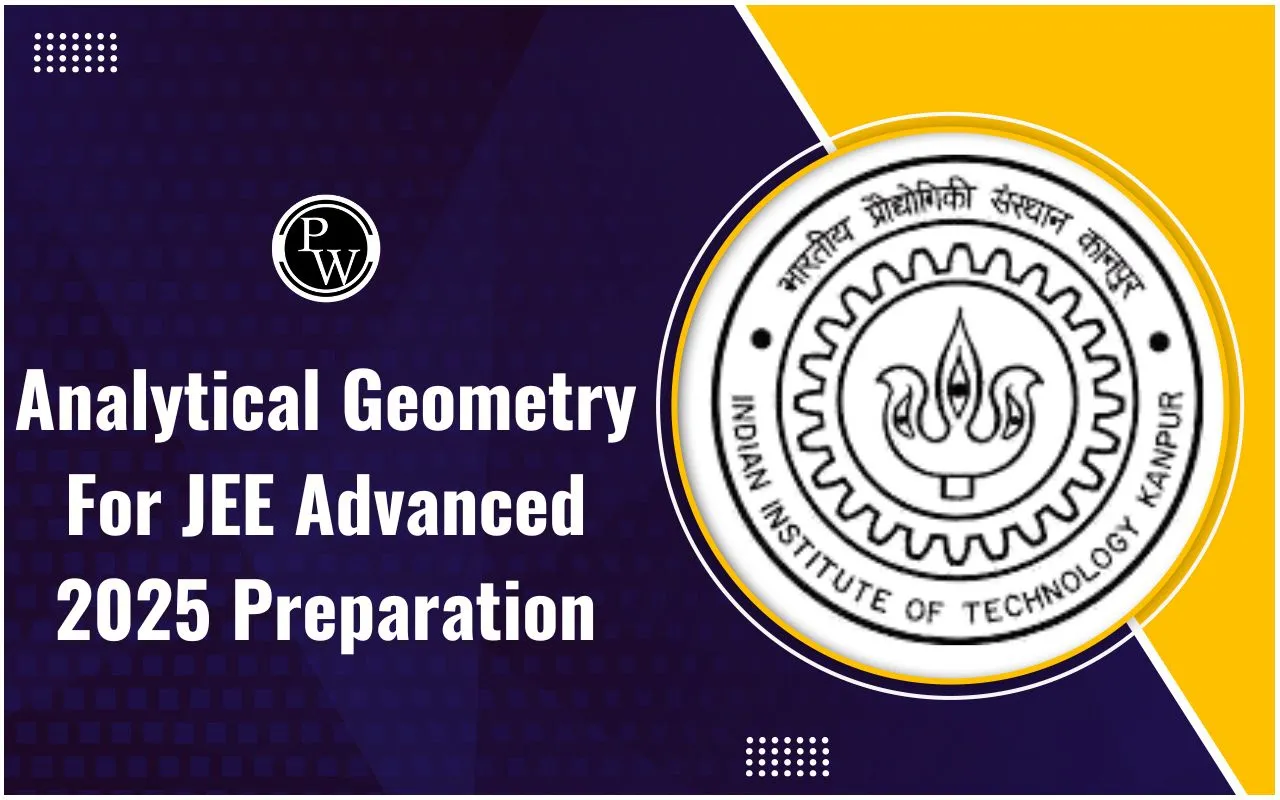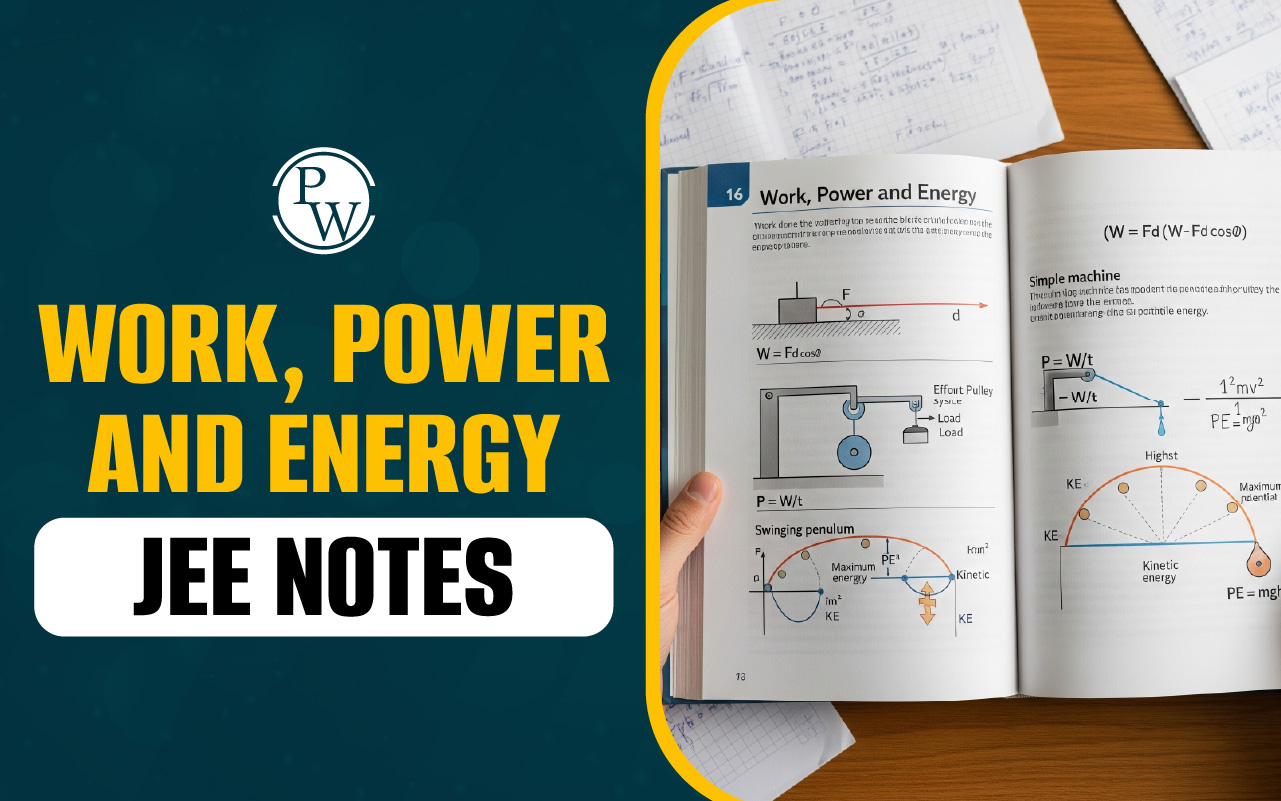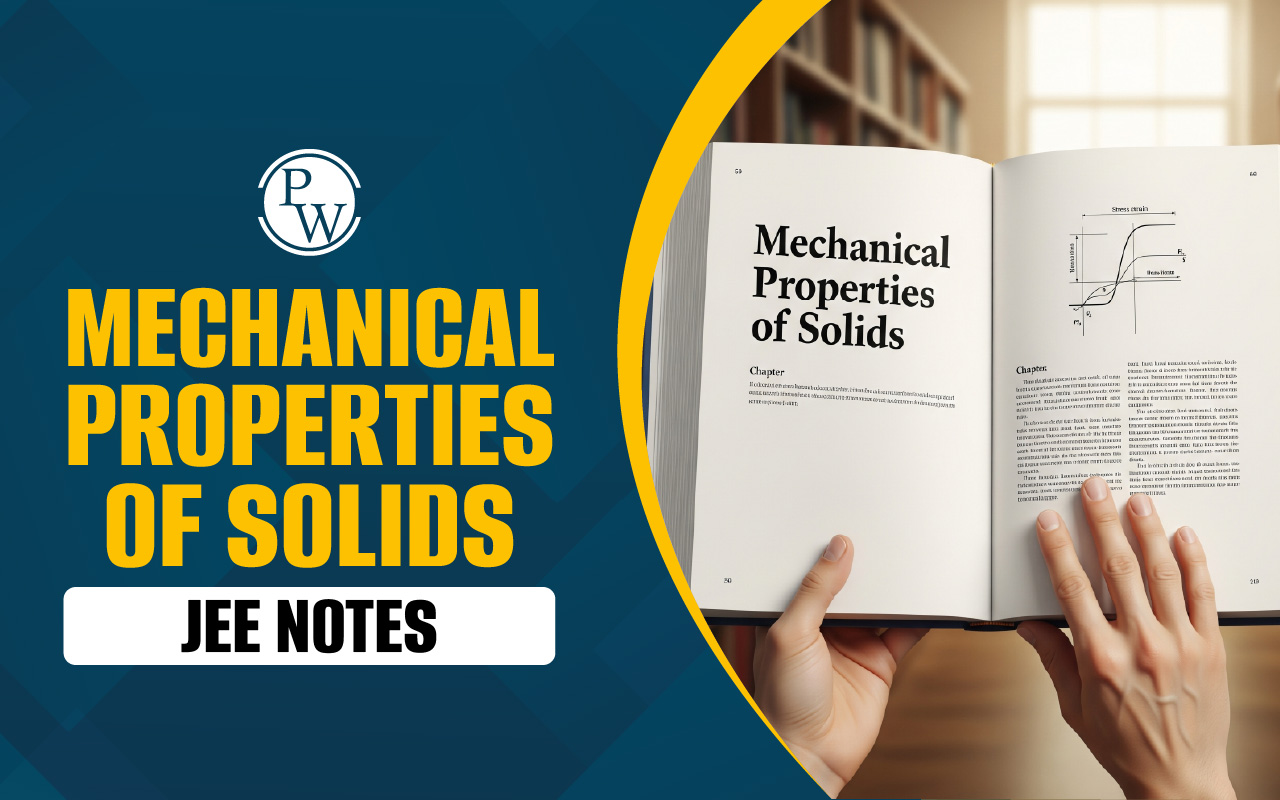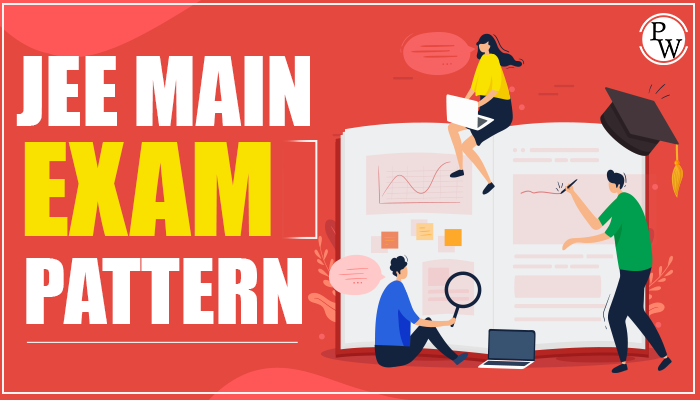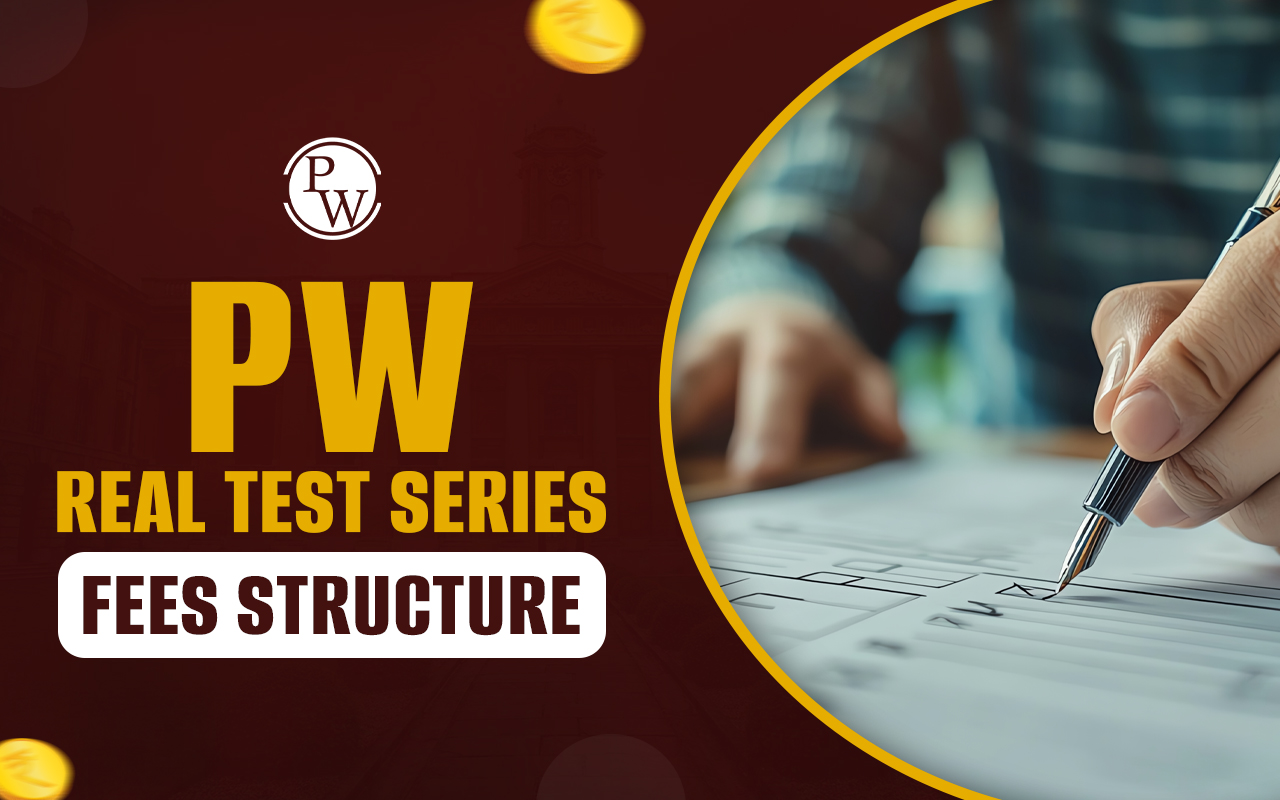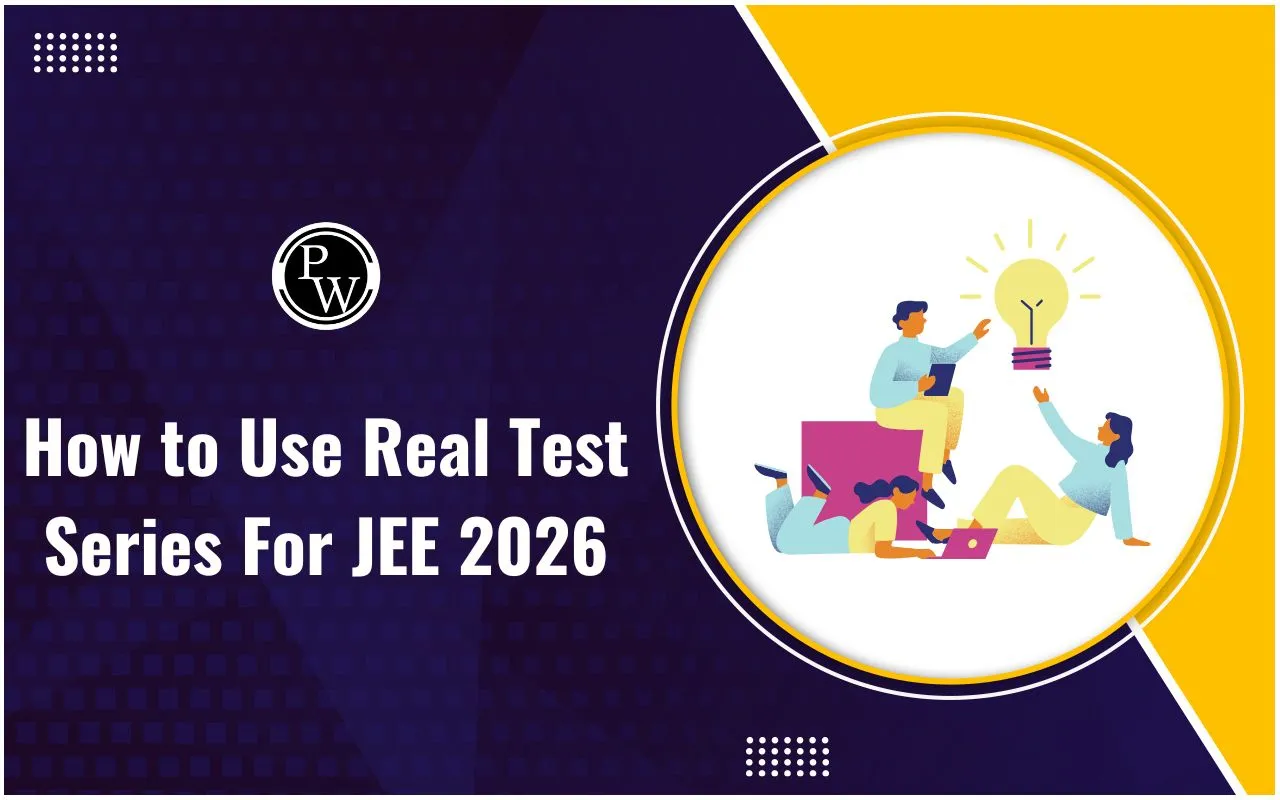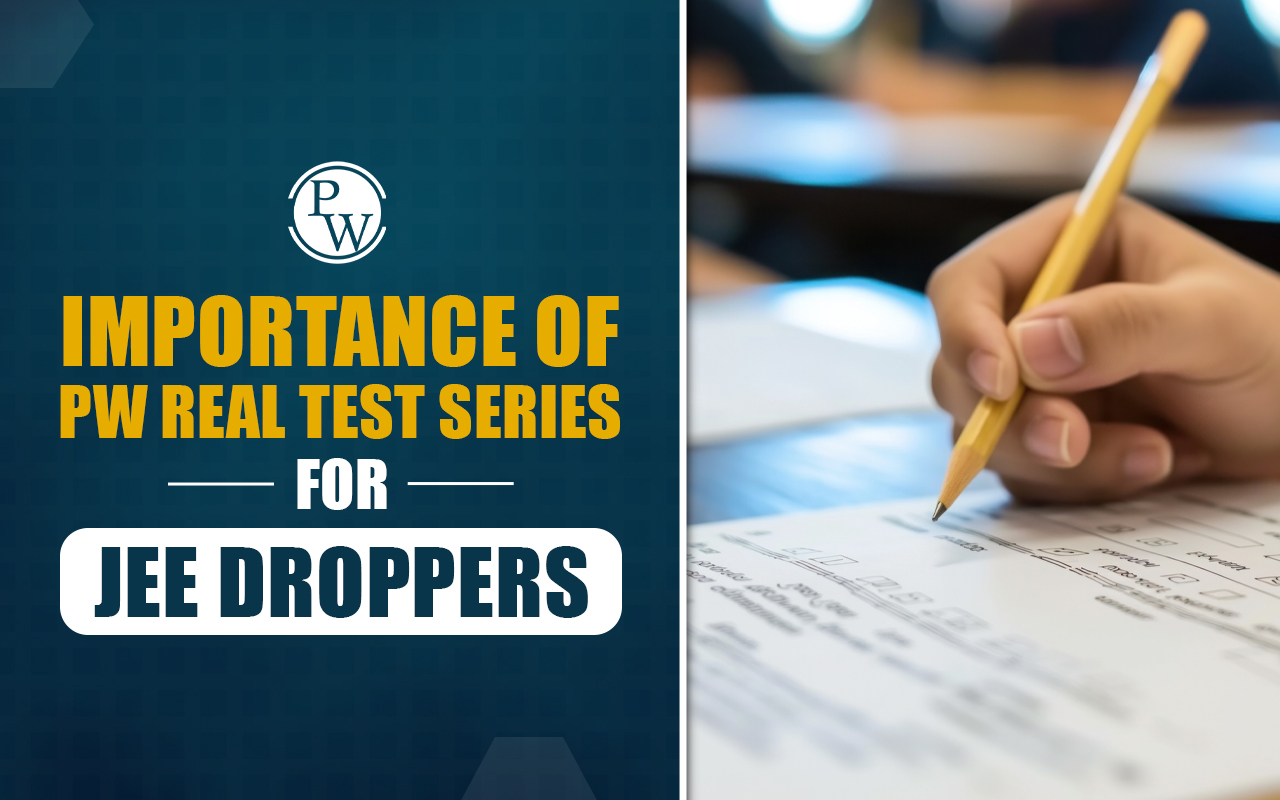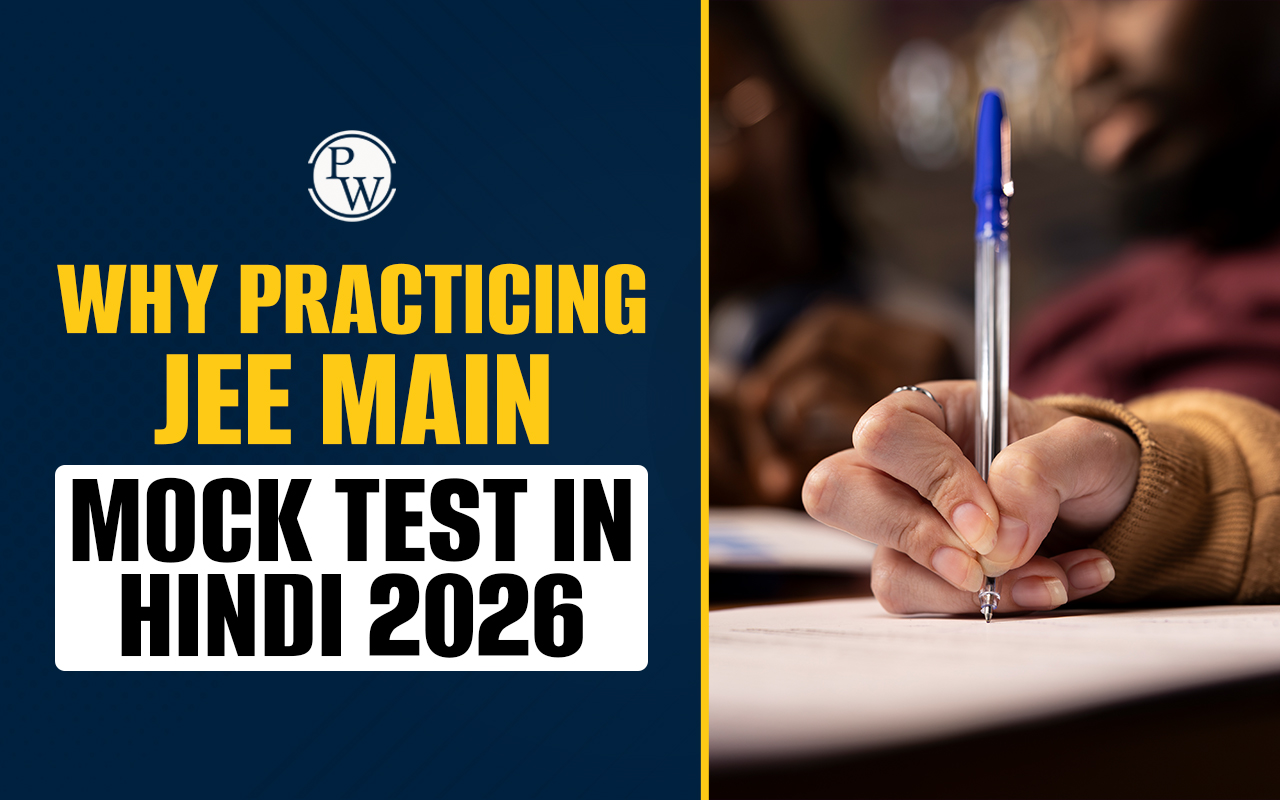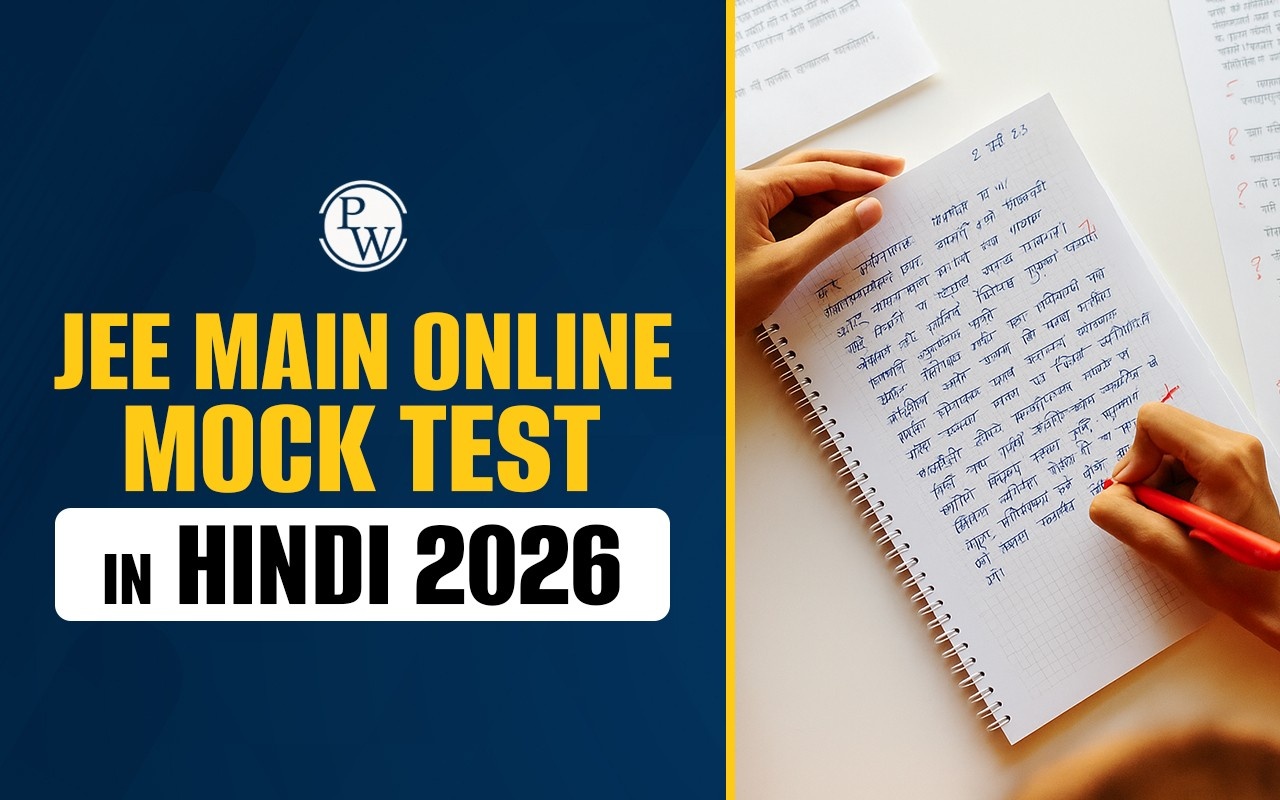
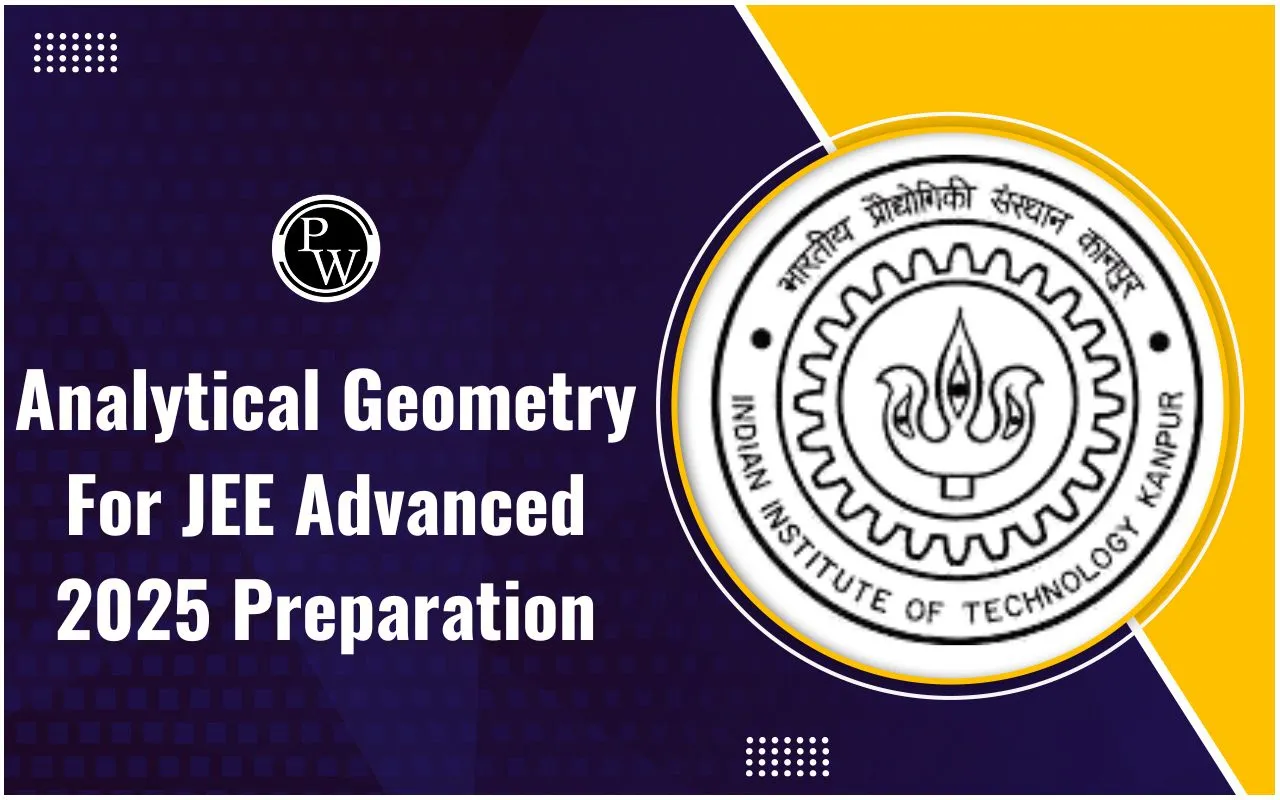
Analytical Geometry for JEE Advanced 2025 Exam Preparation : Analytical Geometry, also known as Coordinate Geometry, is an important part of the JEE Advanced Mathematics Syllabus 2025. It involves studying geometric shapes using algebra and a coordinate system. This chapter covers important topics such as lines, circles, parabolas, ellipses, and hyperbolas, which aid in solving problems efficiently with equations and formulas. With a weightage of around 20% in the Mathematics section, Analytical Geometry plays a key role in JEE Advanced. Many questions are directly based on its concepts or combined with Algebra and Calculus. A good understanding of Analytical Geometry for JEE Advanced 2025 exam preparation can improve accuracy, problem-solving speed, and overall performance.
What is Analytical Geometry?
Analytical Geometry, also called Coordinate Geometry, is a branch of Mathematics that helps in finding the position of points on a plane using numbers called coordinates. It is different from traditional geometry, where shapes and figures are studied without using coordinates or formulas. Instead, Analytical Geometry uses algebra to define and solve geometric problems. This branch of mathematics is used in both two-dimensional (2D) and three-dimensional (3D) geometry. It helps in understanding shapes like lines, circles, and conic sections using equations. Some important terms in Analytical Geometry include planes and coordinates, which form the base of this topic.
Is Analytical Geometry Important for JEE Advanced 2025?
Analytical Geometry is an essential topic of the JEE Advanced 2025 exam, as it holds a good weightage in the Mathematics section. It is considered one of the easier topics because most problems can be solved using formulas and standard methods.
Analytical Geometry for JEE Advanced covers concepts like straight lines, circles, parabolas, ellipses, and hyperbolas in both 2D and 3D. Memorizing key formulas and understanding their applications can help in solving problems quickly. Regular practice and solving previous years' questions can further improve accuracy and confidence in this section.
Important Topics of Analytical Geometry for JEE Advanced 2025 Exam Preparation
In order to score well in Analytical Geometry for JEE Advanced 2025, a strong foundation in coordinate geometry is a must. This topic involves many important concepts from which the majority of questions are often asked in different ways in the exam. Some of the important topics of Analytical Geometry for JEE Advanced 2025 exam preparation are outlined below:
1. Analytical Geometry for JEE Advanced 2025: Straight Lines
-
Straight lines form the base of Analytical Geometry. The questions on this topic are usually direct and require understanding basic formulas and properties. However, for JEE Advanced, concepts like pairs of straight lines, lines passing through the intersection of two lines, and the angle bisector equations become important.
-
Other key topics include concurrency of lines and important points in a triangle, such as the centroid, orthocenter, incenter, and circumcenter. Knowing the parametric form of a line can also be useful in solving certain problems quickly.
2. Analytical Geometry for JEE Advanced 2025: Circles
-
The circle is one of the most important topics in Analytical Geometry because its properties and formulas are frequently used in solving other geometry problems. Many JEE Advanced questions combine circles with straight lines, such as finding the points of intersection between them or determining the equation of a circle passing through specific points.
-
Other key concepts include the radical axis, radical center, and common tangents of two circles. Understanding the parametric form of a circle can help simplify problems and solve them efficiently.
3. Analytical Geometry for JEE Advanced 2025: Conic Sections
-
The conic sections—parabola, ellipse, and hyperbola—form a major part of coordinate geometry. Many JEE Advanced questions are based on a combination of these curves with circles and straight lines. Among them, the parabola is the most important because its properties and problem-solving techniques help in understanding the other two conics.
-
Other important topics from Conic Sections include finding the focus, directrix, eccentricity, and parametric equations. Tangents, normals, and loci-related problems are also frequently asked, so practicing these is advised.
4. Analytical Geometry for JEE Advanced 2025: Three-Dimensional Geometry (3D Geometry)
-
3D geometry does not have as many different types of questions as other topics, but it is still an important part of the syllabus. Many problems are designed like puzzles and require logical thinking. To build a strong base, it is helpful to start with basic concepts such as direction cosines, direction ratios, and equations of planes and lines.
-
For the upcoming JEE Advanced 2025, applicants are encouraged to include additional topics like the equation of a sphere and conditions for four non-coplanar points in their exam preparations. Some questions in the exam may follow a specific pattern, so recognizing these can save time.
8 Effective Ways to Study Analytical Geometry for the JEE Advanced 2025 Exam
Mastering Analytical Geometry for JEE Advanced 2025 requires a clear understanding of concepts, regular practice, and strategic revision. For the ease of applicants understanding, here are the 8 simple yet effective ways to study Analytical Geometry for the JEE Advanced 2025 exam:
1. Build a Strong Foundation : Start with the basics of the Cartesian coordinate system, including plotting points, the distance formula, the section formula, and the concept of slopes. Learn the standard equations of straight lines, circles, parabolas, ellipses, and hyperbolas. Understanding these equations will help in solving advanced-level problems.
2. Solve Different Types of Questions : Practice problems of different types, including numerical, theoretical, and application-based questions. Focus on topics such as intersections, tangents, normals, and family of curves. Visualizing geometric figures based on their equations will improve accuracy and problem-solving speed.
3. Revise on a Daily Basis and Apply Concepts : Make short notes of all important formulas and properties to revise them on a daily basis. Analytical Geometry requires applying concepts from one topic to another. For example, solving problems based on the intersection of a line with a circle or conic section involves multiple concepts.
4. Focus on Important Topics : Some topics in Analytical Geometry hold more weightage of marks in the JEE Advanced exam. So students are advised to give special attention to:
-
Straight Lines: Slopes, angles, equations, and intersection points.
-
Circles: Standard equations, tangents, chords, and radical axis.
-
Parabolas: Equations, focus, directrix, and tangents.
-
Ellipses: Major and minor axes, foci, and standard equations.
-
Hyperbolas: Asymptotes, eccentricity, and foci.
5. Solve JEE Advanced Previous Year Papers and Mock Tests : Practicing previous years’ JEE Advanced question papers will help in understanding the exam pattern and difficulty level. Taking JEE mock tests regularly is important for improving time management and identifying weak areas. Aspirants can also benefit from the PW JEE Test Series, designed for Class 11th, 12th, and droppers. These tests provide nationwide benchmarking with All India Rank, video solutions with detailed analysis, and a real exam simulation experience. With varied test formats, including full syllabus, part syllabus, and chapter-wise tests, aspirants can customize their practice based on their preparation stage.
6. Keep Practicing and Avoid Overconfidence : Since all topics in Analytical Geometry are interrelated, continuous practice is a must. Many aspirants feel confident after solving straight line and circle problems but struggle with hyperbolas. To avoid this, maintain consistency in practice and solve problems from all topics.
7. Make Short Notes for Quick Revision : Prepare a formula sheet with all important formulas and properties. Reviewing them regularly will help in quick recall during exams.
8. Use the Right Study Material : For mastering Analytical Geometry, it is important to solve structured and well-organized study materials. Aspirants can begin with the NCERT books of 11th and 12th, as they are designed to cover all fundamental and advanced concepts systematically. For additional practice, PW IIT JEE Books can be a useful resource. These study materials include many questions covering past-year JEE Advanced questions and topic-wise exercises to strengthen applicants' conceptual understanding. Practicing through these structured materials helps aspirants gain confidence and improve problem-solving speed.
Analytical Geometry for JEE Advanced 2025 exam preparation is a crucial part of the Mathematics section, which needs conceptual clarity and continuous problem-solving practice. Understanding key topics like straight lines, circles, conic sections, and 3D geometry is vital for solving tough problems in the exam. Also, regular revision, solving previous year JEE Advanced questions, and attempting mock tests will help aspirants improve accuracy and confidence. With a well-structured study plan and consistent effort, acing Analytical Geometry can greatly boost overall performance in the forthcoming JEE Advanced 2025.
Analytical Geometry for JEE Advanced 2025 Preparation FAQ
Q.1 : Is analytical geometry easy in JEE Advanced?
Q.2 : How important is Analytical Geometry for JEE Advanced 2025 exam preparation?
Q.3 : What is the weightage Analytical Geometry carries in JEE Advanced?
Q.4 : Is coordinate geometry important for JEE Advanced 2025?
Q.5 : How can I score well in Analytical Geometry for JEE Advanced 2025?

